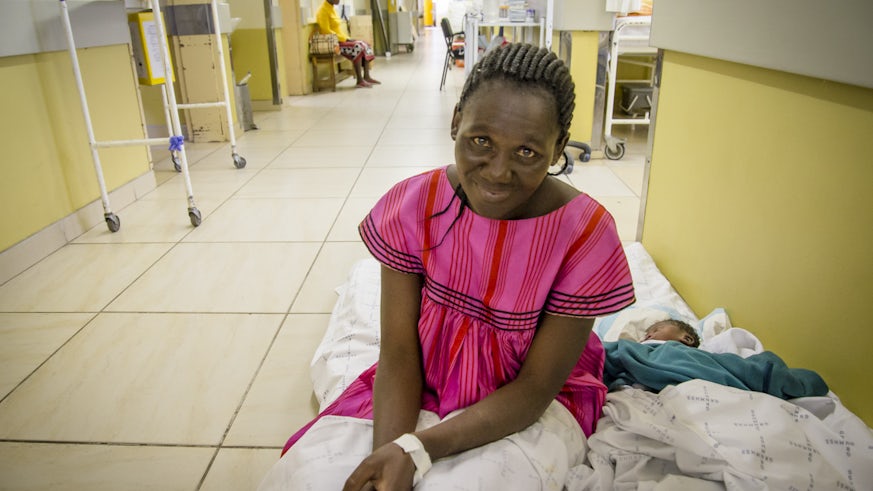‘We can make a real impact here and save lives’
21 October 2015

Welsh expertise offers life-saving training in remote region
Five senior anaesthetists from south Wales are heading to a remote region of southern Africa to provide life-saving training as part of a unique Cardiff University project.
The intensive course in a desert-like area of Namibia will equip medical officers with vital skills in anaesthetics and critical care.
Approximately 16 medical officers - who work in clinics, hospitals and community settings in Oshakati in the far north of the country close to the Angolan border - will be trained over two weeks.
The training is part of the University’s ambitious Phoenix Project, which has teamed up with Welsh Government and the University of Namibia (UNAM) for a raft of activities involving education, health and science.
They include honing the maths skills of scientists, boosting teaching practices, strengthening local languages and supporting software development.
Judith Hall, Professor of Anaesthesia at Cardiff University and project leader, said: “In Oshakati we’ll be providing basic anaesthetic skills in relation to mothers having babies because Caesarean Sections are one of the most common operations in Africa.
“They’ve also asked for training in the management of sick people because a lot of patients have to travel long distances to hospital.
“It’s particularly crucial the more rural an area is because of the distances involved – they can be very, very ill by the time they arrive at hospital.
“With pregnant mothers you may not get the baby out, but if you recognise they’re ill you can give fluids and resuscitate, which will save lives.”

Namibia has just a handful of medically qualified anaesthetists – and a desperate shortage of critical care doctors - for a geographically huge country of over two million people.
Another anaesthetist taking part, Dr Brian Jenkins, Senior Lecturer in Anaesthetics and Critical Care Medicine at Cardiff University and Honorary Consultant Anaesthetist at Prince Charles Hospital in Merthyr Tydfil, said the focus of the training would be on acute management of sick patients.
“We want to teach knowledge and skills to medical staff who will help patients,” he said.
“It is relatively easy to help in the short-term, but we also want to build support mechanisms so that any improvements we achieve can be maintained by local staff when we leave.”
The intensive training is the forerunner of Namibia’s first post-graduate course to address these shortages, which is due to start in February.
The Masters, four or five years in length and run in conjunction with the Namibian health service and UNAM, is also part of The Phoenix Project and will result in six to 10 students being trained each year.
“At the moment you’re exceptionally lucky in Namibia to be treated in a hospital with an anaesthetist,” said Professor Hall.
“Working closely with the University of Namibia, we can make a real impact here and save lives.”
There are also plans to use Cardiff University expertise to provide more comprehensive training for midwives.
Grace Thomas, the University’s Professional Head of Midwifery and Lead Midwife for Education, is visiting Namibia to find out the midwives’ training needs.
Cardiff is also involved in the development of a clinical simulation suite at UNAM for the training of healthcare professionals across the board.
Other activities on the forthcoming trip include Cardiff University’s Matt Smith supporting e-learning at UNAM, and the scoping of a physics project with Professor Jon Davies from the School of Physics and Astronomy.
The Phoenix Project,which supports the Welsh Government’s Wales for Africa programme, is a mutually beneficial collaboration between Cardiff University and UNAM.
Staff from Cardiff University’s three Colleges are directly involved, as are professional services staff in areas such as Libraries and Human Resources.
The project covers three broad areas: women, children and infectious diseases; science; and communication.
It is one of Cardiff University’s flagship engagement projects, otherwise known as the Transforming Communities programme, which work with communities in Cardiff, Wales and beyond in areas including health, education and wellbeing.
This includes supporting Cardiff city-region, connecting communities through hyperlocal websites, building community engagement models in Cardiff and Merthyr, and working with the Welsh Government to help achieve the UN’s Millennium Development Goals.